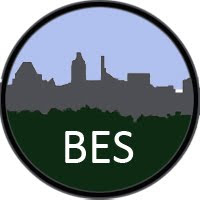Past Education Projects
Urban Tree Education Project
The Urban Tree Education Project (UTEP) is a week-long professional development program for middle and high school teachers (upper elementary will be considered) to increase teacher knowledge, understanding and skills for collecting long-term data on and teaching about trees as critical components of urban ecosystems. UTEP is a component of the Baltimore Ecosystem Study’s (BES) Investigating Urban Ecosystems Teacher Institute series in which teachers receive training in environmental science research and teaching techniques. This program includes a combination of workshops, in-school support and education materials and resources.
Pathways to Environmental Science Literacy
The Math-Science Partnership “Culturally Relevant Ecology, Learning Progressions and Environmental Literacy – Pathways to Environmental Science Literacy” is an NSF-funded project that connects the research and education prowess in the environmental sciences of universities and the Long-term Ecological Research Network with the professional development of science teachers of partner middle schools and high schools. The program focuses on coupled human-ecosystem interactions in the context of socio-ecological systems as a framework to promote place based learning and environmental literacy and seeks to increase students understanding of global water and carbon cycling, as well as biodiversity. We are developing learning progression frameworks and associated assessments that document pathways to understanding these three themes for middle school and high school students. The project involves four LTER research sites (Santa Barbara Coastal, Short-Grass Steppe, Kellogg Biological Station, Baltimore Ecosystem Study) and 22 K-12 schools/districts that extend across the nation, and directly impacts over 250 science teachers and up to 70,000 students of highly diverse backgrounds.
For more information or to access project curriculum, assessments and research visit the Pathways Website.
Students Restoring Urban Streams
The Students Restoring Urban Streams Project, funded in part by the Department of Natural Resources Governor O’Malley’s Stream Restoration Challenge grant, is an effort to reduce storm water runoff, decrease the urban heat island effect, and provide access to service learning opportunities for middle and high school students. Baltimore City Recreation & Parks has partnered with seven institutions and organizations to establish a minimum of 30 acres of urban tree canopy in school yards and offsite locations by December of 2014. the project will engage 22 schools, 44 teachers and approximately 1100 students to plant trees, attend professional development and integrate lessons and projects aligned to the MSDE Environmental Literacy standards. Student participants can earn up to 25 hours of service learning through issues investigations, planning and action projects. Partners include: Baltimore City Public School System, Baltimore Ecosystem Study, Parks & People Foundation, Blue Water Baltimore, Tree Baltimore, National Aquarium at Baltimore and Earth Force.
For more information or to participate contact Desiree Shelley, Desiree.Shelley@baltimorecity.gov
Communicating Climate Change
The Keeling Curve is a graph which plots the ongoing change in concentration of carbon dioxide in Earth’s atmosphere since 1958. It is based on continuous measurements taken at the Mauna Loa Observatory in Hawaii that began under the supervision of Charles David Keeling.
Communicating Climate Change (C3) engaged 12 science centers in the first national effort to promote public understanding of global climate change by engaging the public in local studies of climate phenomena. The participating science centers from across the U.S. shared institutional commitments to increase public climate literacy. Each offered a unique perspective to the projec t and a varied means to address climate change, in cooperation with a local LTER or other research laboratory. This national network addressed common goals, problems, and opportunities, and facilitated resource exchanges among the partners.
The Maryland Science Center engaged volunteers in taking temperature measurements across the urban-rural gradient. The study looked at Urban Heat Islands, a phenomena whereby urban centers have warmer temperatures than the surrounding rural areas. The Urban Heat Island Effect is not an effect of climate change, but rather of human activity shaping our environment.
For more information or to participate, contact the Maryland Science Center






